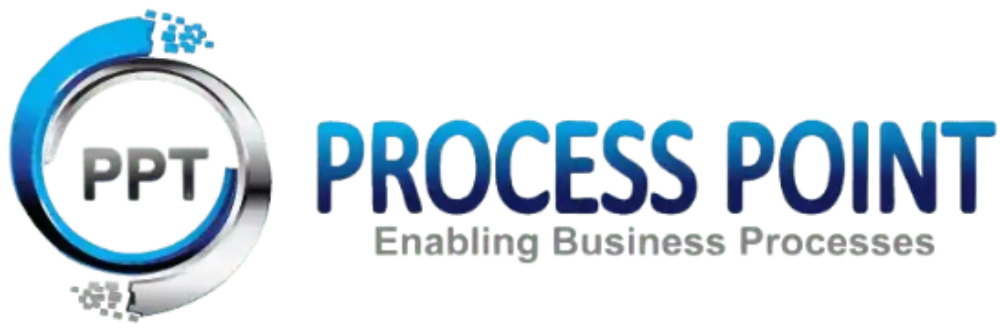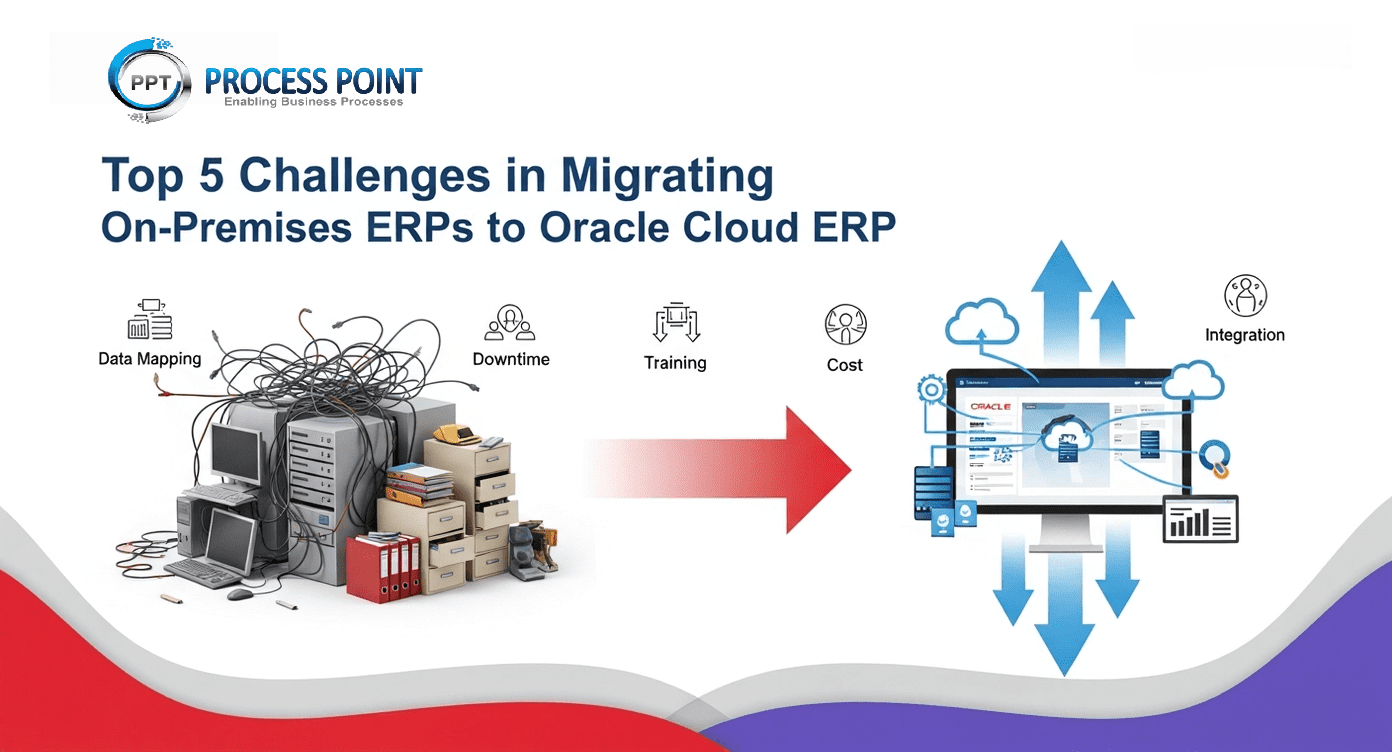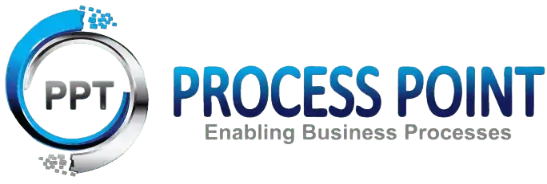Oracle Cloud ERP vs Oracle EBS: What’s Best for Your Business in 2025?
- Published on : June 9, 2025
Introduction
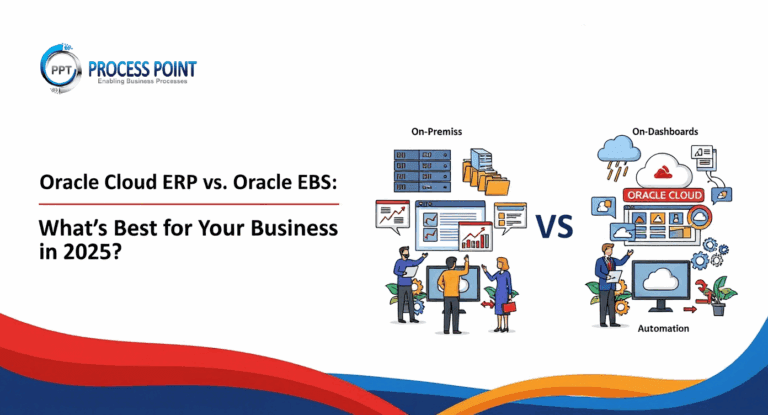
As businesses adapt to evolving technologies and rising customer expectations, selecting the right ERP system has become a major decision point. Oracle offers two popular ERP platforms: Oracle Cloud ERP, a modern, cloud-based SaaS solution, and Oracle E-Business Suite (EBS), a long-standing, on-premises ERP system.
While both platforms offer robust enterprise functionality, they serve different purposes and fit different business scenarios. In 2025, the choice between them hinges on factors like IT strategy, scalability requirements, compliance obligations, budget preferences, and long-term vision.
This blog offers a side-by-side comparison of Oracle Cloud ERP and Oracle EBS to help you choose the right system for your organization.
Oracle EBS vs. Oracle Cloud ERP: A Snapshot
Feature | Oracle EBS | Oracle Cloud ERP |
Deployment | On-premises or hosted | Cloud-based (SaaS) |
Ownership | Customer owns infrastructure | Oracle manages all infrastructure |
Upgrade Model | Manual, periodic | Automatic, quarterly updates |
Customization | Deep custom code allowed | Limited to configuration and extensions |
UI/UX | Legacy interface | Modern, responsive interface |
Cost Model | High upfront CapEx + maintenance | Subscription-based OpEx |
Security | Managed by internal IT | Managed by Oracle Cloud Infrastructure |
Compliance | Responsibility of organization | Shared responsibility with Oracle |
Scalability | Hardware dependent | Auto-scaling in Oracle Cloud |
Analytics | Add-on tools required | Embedded AI and advanced analytics |
1. Deployment and Maintenance
Oracle EBS:
- Installed on-premises or hosted in a private cloud.
- Requires customer-managed infrastructure (servers, databases, storage).
- Maintenance activities such as patches, backups, and disaster recovery are handled internally.
Oracle Cloud ERP:
- Delivered via the cloud as Software-as-a-Service (SaaS).
- Oracle handles infrastructure, updates, data backup, and security.
- Rapid deployment compared to traditional systems.
Verdict: Oracle Cloud ERP reduces IT workload and improves system reliability. Suitable for businesses looking to modernize quickly.
2. Customization and Extensibility
Oracle EBS:
- Allows deep customizations through PL/SQL, custom forms, workflows, and reports.
- Ideal for organizations with specific and non-standard business processes.
- Customizations can increase upgrade complexity and long-term costs.
Oracle Cloud ERP:
- Encourages use of best practices with configuration over customization.
- Offers extensibility via Oracle Visual Builder and Oracle Integration Cloud.
- Suitable for businesses seeking standardized, scalable operations.
Verdict: Choose EBS if you require heavy customization; go with Cloud ERP if you prefer simplified, standardized systems.
3. Upgrades and Innovation
Oracle EBS:
- Customers manage upgrade schedules.
- Typically upgraded every few years.
- Slower access to new features and enhancements.
Oracle Cloud ERP:
- Oracle delivers quarterly updates with new features, security patches, and performance improvements.
- Continuous innovation with embedded AI, ML, and automation.
Verdict: Oracle Cloud ERP provides quicker access to innovation and reduces maintenance effort.
4. User Experience and Accessibility
Oracle EBS:
- Legacy interface, less intuitive for new users.
- Limited mobile support and remote access options.
Oracle Cloud ERP:
- Modern, web-based UI with role-specific dashboards.
- Accessible from any device with internet connectivity.
- Native mobile apps for workflows, approvals, and analytics.
Verdict: Oracle Cloud ERP enhances productivity and collaboration, especially in remote or hybrid work environments.
5. Cost and Licensing
Oracle EBS:
- Capital Expenditure (CapEx) model.
- One-time licensing fee + ongoing support and infrastructure costs.
- High total cost of ownership (TCO) over time.
Oracle Cloud ERP:
- Operational Expenditure (OpEx) model.
- Subscription-based pricing includes support, updates, and infrastructure.
- Scalable and predictable monthly costs.
Verdict: Cloud ERP offers a more flexible and budget-friendly pricing model for most growing businesses.
6. Integration and Ecosystem
Oracle EBS:
- Requires custom-built integrations using APIs or middleware.
- Integration setup can be time-consuming and costly.
Oracle Cloud ERP:
- Comes with pre-built connectors for other Oracle and third-party applications.
- Seamless integration with Oracle Cloud HCM, SCM, CX, and Analytics.
- Uses Oracle Integration Cloud for advanced workflows.
Verdict: Cloud ERP ensures faster integration and supports a unified digital ecosystem.
7. Security and Compliance
Oracle EBS:
- Security must be implemented and maintained by internal teams.
- More control but higher risk without dedicated security infrastructure.
Oracle Cloud ERP:
- Security managed by Oracle, including encryption, access control, and compliance reporting.
- Meets global standards like GDPR, HIPAA, SOC, and ISO.
Verdict: Oracle Cloud ERP simplifies compliance management and provides enterprise-grade security.
When to Choose Oracle Cloud ERP
- You are moving toward a cloud-first strategy.
- Your business needs scalability, rapid deployment, and lower maintenance overhead.
- You want real-time updates, better UX, and predictable costs.
- You aim to standardize processes and reduce reliance on custom code.
When to Choose Oracle EBS (for now)
- You have a complex, highly customized environment.
- Your organization must comply with specific data residency or control regulations.
- You have already made a significant investment in EBS infrastructure.
- Your internal IT team is experienced in managing ERP systems.
How Process Point Technology Can Help
At Process Point Technology, we specialize in guiding organizations through the ERP decision-making process. Whether you want to:
- Move from EBS to Oracle Cloud ERP
- Modernize your on-premises Oracle EBS
- Build hybrid cloud strategies using Oracle Cloud Infrastructure (OCI)
- Evaluate long-term ROI of Oracle Cloud ERP
Our experts are here to help you every step of the way.
Related Blogs
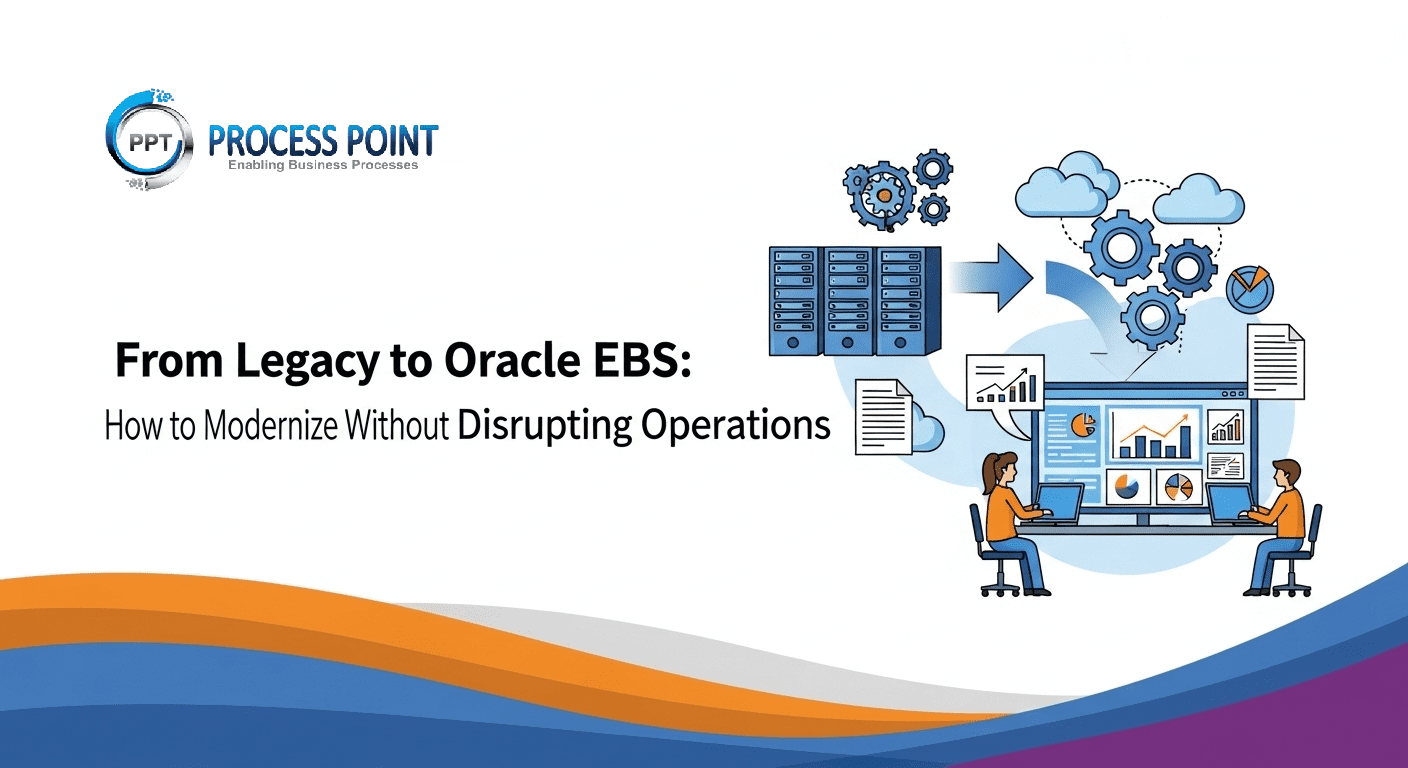
June 2, 2025
From Legacy to Oracle EBS: How to Modernize Without Disrupting Operations
Upgrade from legacy systems to Oracle EBS for better efficiency, visibility, and agility. Explore phases, challenges, and best practices.
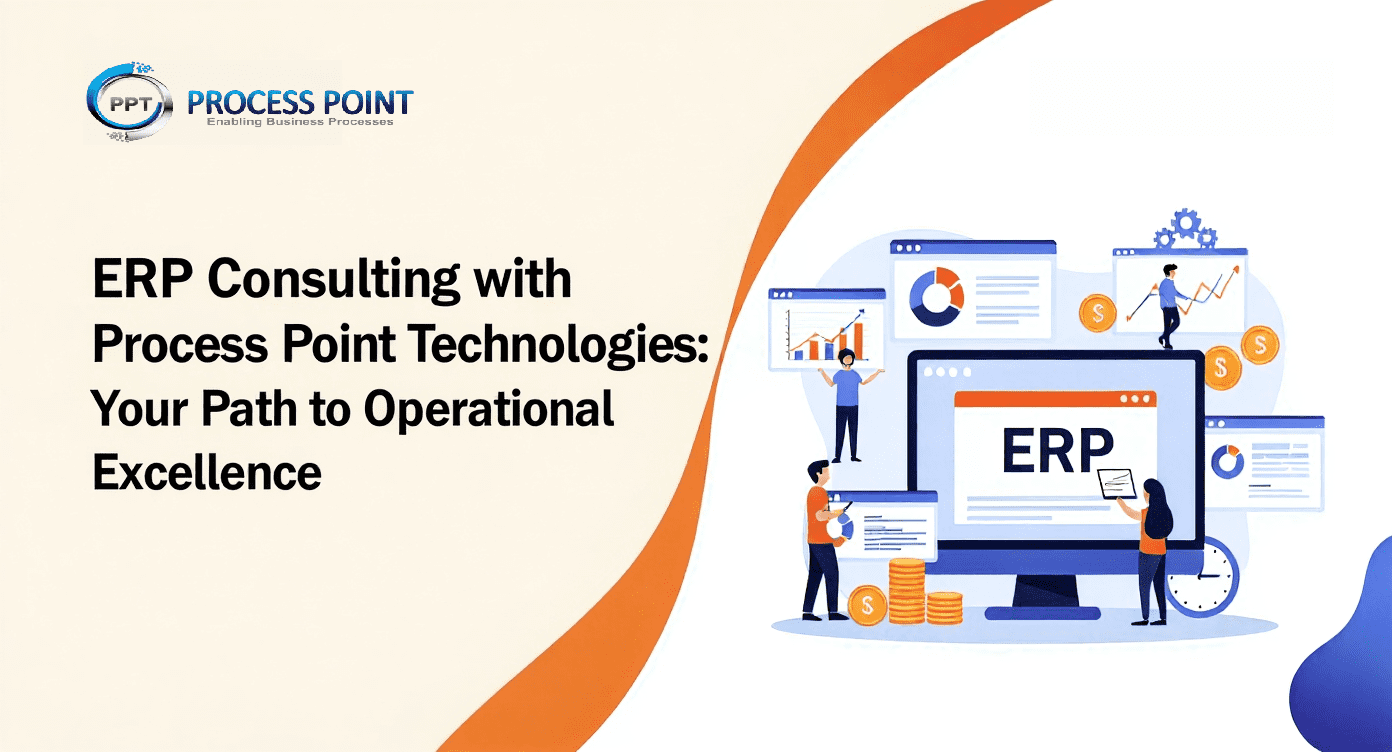
June 6, 2025
ERP Consulting with Process Point Technologies: Your Path to Operational Excellence
ERP consulting boosts efficiency and growth by guiding businesses in selecting and optimizing systems like Oracle, SAP, and Dynamics.
